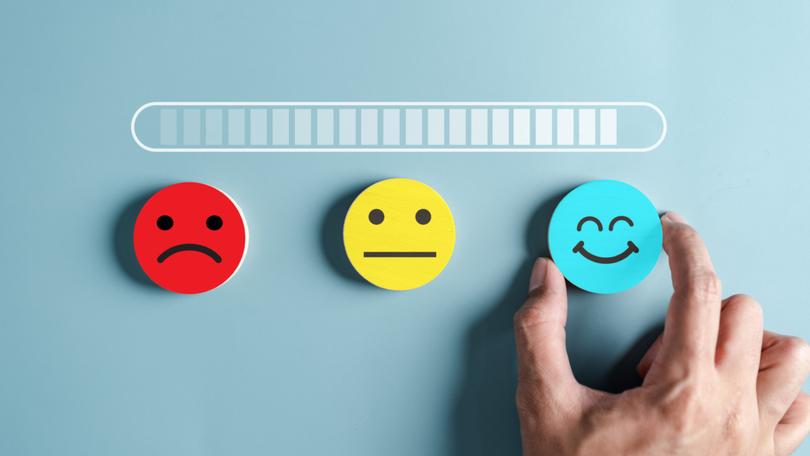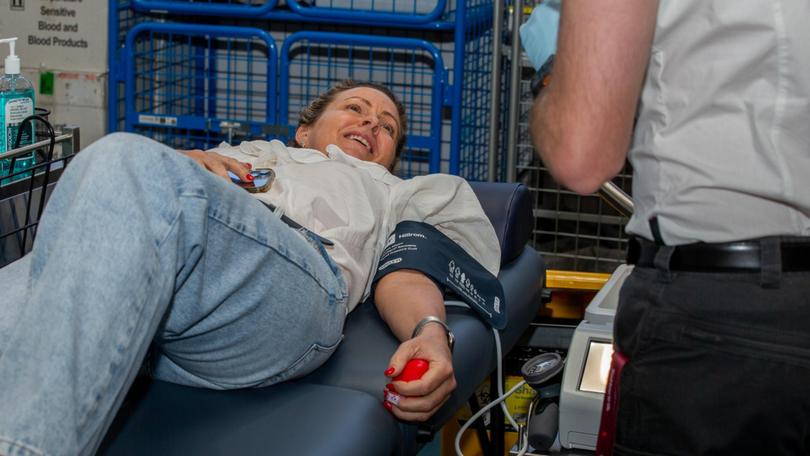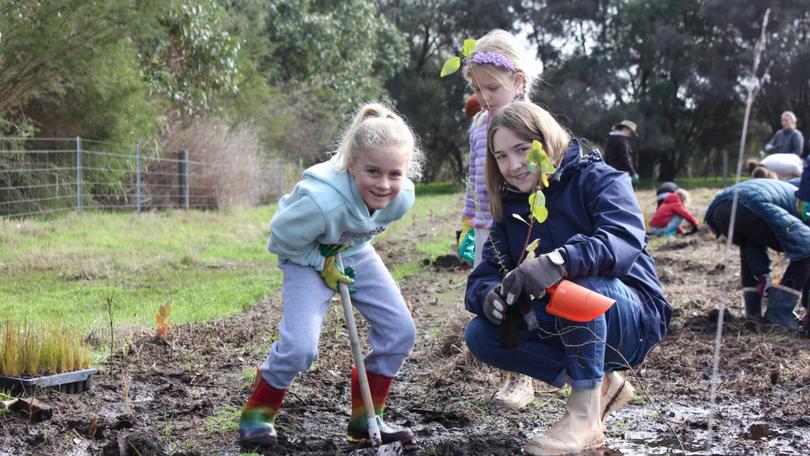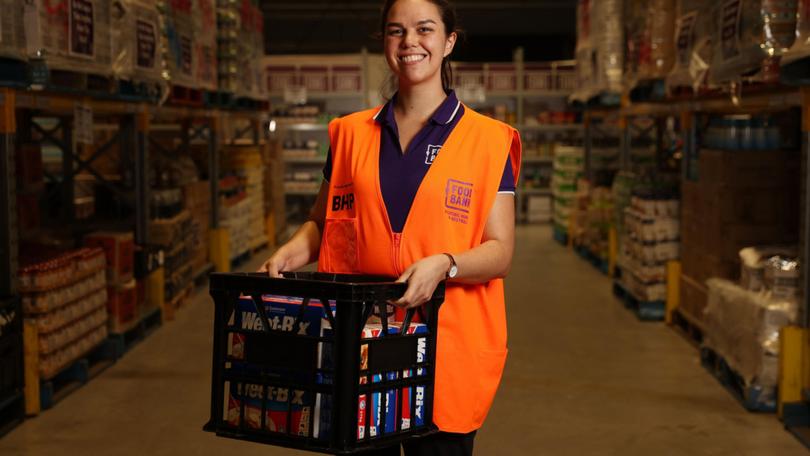THE WASHINGTON POST: A dose of altruism could be just what the doctor ordered

If you want to increase your happiness and well-being, spend your money, time or energy on someone else.
Research consistently finds that acts of altruism, such as donating money, volunteering or giving blood, benefit both the receiver and the giver — even when the giver does not expect anything in return.
“Finding joy in helping others is fundamental to who we are as a species,” said Elizabeth Dunn, a professor of psychology at the University of British Columbia.
Sign up to The Nightly's newsletters.
Get the first look at the digital newspaper, curated daily stories and breaking headlines delivered to your inbox.
By continuing you agree to our Terms and Privacy Policy.American volunteering and charitable giving have been on the decline in recent years.
But helping others may set up a positive feedback loop: Because doing good feels good, altruism can beget more altruism and better well-being.
“If things are hard, you often don’t feel like going out of your way to do the things that will help other people around you,” said Abigail Marsh, a professor of psychology and the interdisciplinary neuroscience program at Georgetown University. “But, in fact, that may be actually one of the best things you could do.”
Helping others helps our own well-being
In an influential 2008 study, Dunn and her colleagues gave 46 participants a small amount of money ($5 or $20) and told them to either spend it on themselves or someone else.
People who spent the money on someone else reported being happier than those who spent it on themselves, regardless of the amount of money.
The initial study was small, but subsequent research replicated the well-being benefits of prosocial spending, including a 2020 study with nearly 8000 participants.
Other ways of doing good such as volunteering and donating blood can also feel good, and improve mood and well-being, research shows.

Volunteering, in particular, may give “a little bit more of that warm glow that you get from seeing how your actions have benefited other people,” Marsh said.
Giving to others seems to literally take away our own pain.
One 2019 study reported that people who performed altruistic acts, such as donating money to orphans, perceived less physical pain when given an electric shock or the pinch of a tourniquet compared with those who earned the money for themselves.
Cancer patients even experienced a respite from chronic pain.
After an altruistic act, fMRI neuroimaging showed neural activity decreased in the anterior cingulate cortex and the insula, which are both pain-related areas of the brain.
At the same time, activity increased in the prefrontal cortex, which is important for imbuing the altruistic act with meaning.
Being altruistic also pays longer-term health dividends.
People who helped others reported that they were more satisfied with their life and job and had fewer depression symptoms up to two months later, one 2018 study reported.
Even small acts of kindness can be surprisingly beneficial to our well-being.
Marsh said, “It changes how you think about yourself as a person. It sort of fosters your belief in a world of people who try to help each other.”

Joy in helping others may be fundamental
“We are such a social species that doing things that help others around us is just very deep in our core,” Marsh said.
“It’s something that most people are built to want to do.”
Altruism probably involves brain regions connected with reward processing as well as the medial prefrontal cortex, which seems to be “really important for encoding the value of other people’s welfare,” said Shawn Rhoads, a postdoctoral research fellow in computational psychiatry at the Icahn School of Medicine at Mount Sinai.
Even children younger than two seem to find joy in giving away their possessions, Dunn and her colleagues reported in a 2012 study.
When toddlers were asked to donate their Goldfish crackers — “toddler gold, basically” — they appeared happier than when they received the treats themselves, said Dunn, who is also a co-author of “Happy Money: The Science of Happier Spending”.
Another line of evidence that altruism may be evolutionarily ingrained is that the well-being benefits of altruism are seen in different cultures around the world.
The studies also show that well-being and altruism probably have a bidirectional relationship: Happier people tend to engage in more altruism, and more altruistic people feel happier.
“Which is great,” Marsh said. “It means that these two beneficial outcomes can mutually reinforce each other.”
Helping others not only benefits the person giving and the person receiving the aid, but also others merely observing the acts of altruism.
“People who observe acts of altruism also tend to feel better about and less cynical about the world in general,” said Rhoads, who co-wrote a chapter on the relationship between altruism and well-being in the 2023 World Happiness Report with Marsh.
It’s a “very interesting feedback loop of prosocial behaviour.”

How to give back to others
The researchers practice what they study.
Rhoads runs a summer program teaching high school students about computational psychiatry, while Dunn brings her friends and son to Plenty of Plates in Vancouver to make meals for people in need.
Marsh volunteers at a nonprofit she co-founded helping people and families dealing with disorders of aggression.
She also takes an extra doggy bag to the park to pick up garbage when she walks her Goldendoodle, Doug, who is named after the dog in Pixar’s “Up,” whose second line in the movie — “I have just met you, and I love you” — Marsh said reminds her of some of the altruists she studies.
Here is what experts advise.
Start now. Do your research, but don’t put off helping just because you are waiting for the perfect opportunity, Dunn said.
“Even small donations make a difference, both for charities receiving them and for the emotional benefits that we observe among donors,” she said.
Think local. Though people often think of helping large, international charities, donating to or volunteering at nearby organisations can help “knit that fabric of the local community,” Marsh said.
It also helps you make friends, see your effect up close and change local norms, she added.
Ask people what charities they support. Not only can you learn about other opportunities, but it can create connections between you and them, Dunn said.
Allow yourself to enjoy giving back. You may feel guilty about feeling good when helping others.
But “it’s okay to feel good about giving,” Dunn said. “What a wonderful way to feel happy.”
(c) 2024 , The Washington Post
